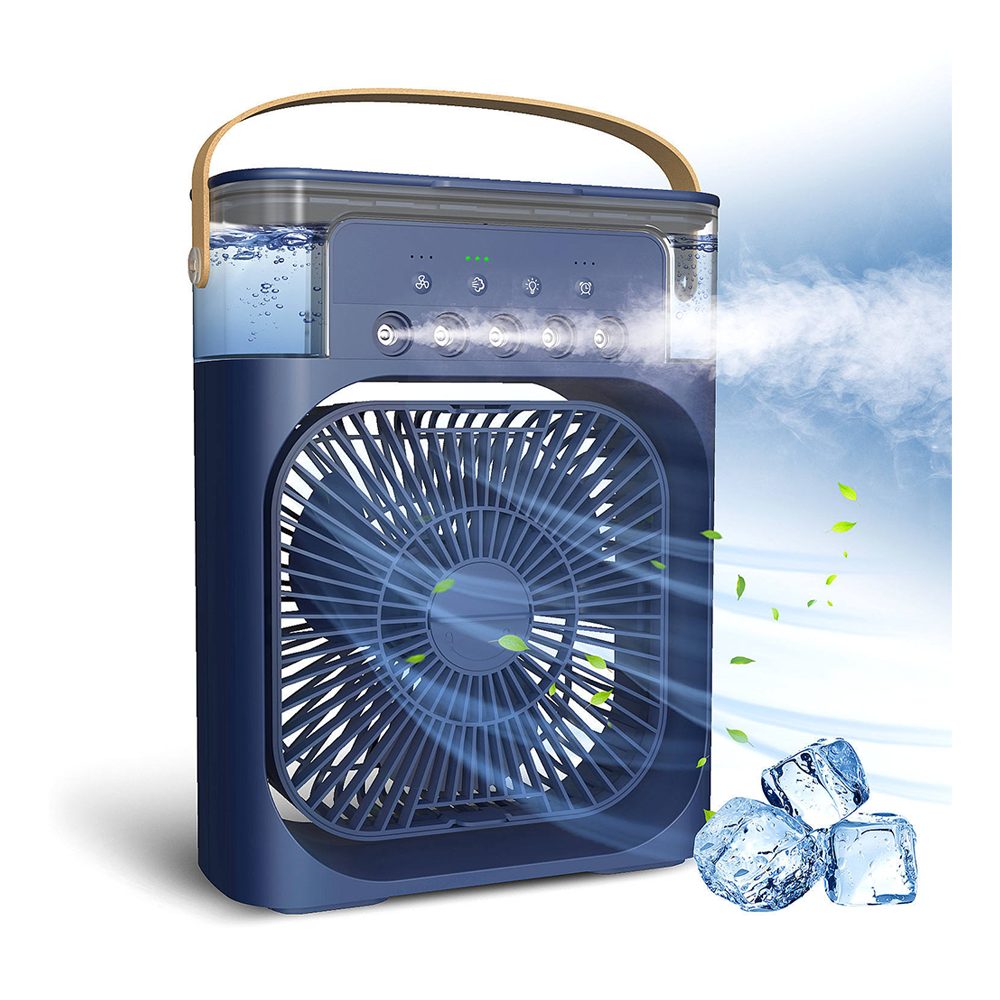
In the modern world, cooling appliances are essential for keeping indoor environments comfortable, especially during hot seasons. Two of the most popular cooling devices are air coolers and air conditioners. While both systems serve the same basic purpose—lowering the temperature of a space—the way they achieve this differs significantly. This article 坐地冷氣機 into the differences, benefits, and drawbacks of air coolers and air conditioners, helping you choose the best option for your home or office.
An air cooler, also known as an evaporative cooler, uses water evaporation to cool the air. It works by drawing warm air through water-soaked pads, which evaporate the water and, in turn, cool the air. This cool air is then circulated throughout the room, lowering the temperature. Since air coolers rely on natural processes, they consume far less energy than air conditioners. However, they are most effective in dry climates because humidity levels can significantly impact their cooling power. The energy efficiency and environmentally friendly operation of air coolers make them a popular choice for people seeking cost-effective and sustainable cooling solutions.
On the other hand, an air conditioner operates using a refrigeration cycle. It uses a chemical refrigerant that circulates through a series of coils and compresses air to cool it down. This cooling process is more powerful than that of an air cooler, capable of significantly lowering room temperatures even in humid climates. Air conditioners can come in various types, including window units, split systems, and central air systems, all of which offer varying degrees of cooling and control over indoor climate. The ability of air conditioners to maintain a precise temperature, regardless of the weather outside, makes them a favored choice for more extensive cooling needs.
One of the primary considerations when choosing between an air cooler and an air conditioner is energy consumption. Air conditioners are more energy-intensive than air coolers, primarily due to the refrigeration process and the power required to run the compressor and fan motors. For people who are conscious of their energy bills, an air cooler could be a more attractive option, especially in regions where high humidity isn’t a concern. On average, an air conditioner can consume five times more electricity than an air cooler. This means the cost of running an air conditioner for long periods can add up, especially during the hottest months.
However, cooling efficiency is another key factor to consider. Air conditioners are far superior when it comes to cooling efficiency, as they can cool large spaces more effectively and quickly, regardless of humidity levels. Air coolers, on the other hand, struggle in humid environments as the air cannot absorb much more moisture, reducing their ability to cool the space. In arid and semi-arid climates, though, air coolers perform exceptionally well. Therefore, your location’s climate plays a significant role in determining which cooling system is most suitable for your needs.
In terms of air quality, air conditioners typically recirculate the same air in a room, which may lead to a buildup of indoor pollutants like dust, allergens, and bacteria if not adequately maintained. Air coolers, in contrast, continuously pull in fresh air from the outside, providing better ventilation and often resulting in cleaner, fresher air indoors. Additionally, since air coolers add moisture to the air, they can help prevent the dryness commonly caused by air conditioners, which can lead to discomfort, particularly for people with respiratory issues or sensitive skin.
Another important distinction is installation and maintenance. Air conditioners often require professional installation and can be costly and invasive, especially with central air conditioning systems that need ductwork. Regular maintenance of air conditioners, such as cleaning filters and refilling refrigerants, is also necessary to ensure optimal performance. Air coolers, on the other hand, are generally easier to install and maintain. Most models are portable, requiring only a power outlet and regular cleaning of the cooling pads. They do not require refrigerants, making them more straightforward to operate.
Noise levels also differentiate the two. Air conditioners, particularly window units, can be quite noisy due to the operation of the compressor and fans. This can be a disturbance, especially in quiet environments like bedrooms or offices. Air coolers tend to be quieter, as they only use a fan and a water pump, making them more suitable for spaces where noise levels are a concern.
Environmental impact is becoming an increasingly important factor in purchasing decisions. Air coolers are considered more eco-friendly since they use less energy and do not rely on chemical refrigerants that contribute to greenhouse gas emissions. In contrast, air conditioners, particularly older models, use refrigerants that can harm the ozone layer. While newer air conditioners use more environmentally friendly refrigerants, their overall energy consumption still makes them less sustainable than air coolers.
Finally, cost is a crucial consideration. Air conditioners, especially advanced models with climate control features, tend to be much more expensive than air coolers. The higher upfront cost, combined with the ongoing expense of higher energy usage, can make air conditioners a significant investment. Air coolers are typically more affordable to purchase and operate, making them an attractive option for budget-conscious consumers.
In conclusion, both air coolers and air conditioners offer distinct advantages and disadvantages, depending on your needs and circumstances. If you live in a dry climate and are looking for an energy-efficient, eco-friendly, and affordable solution, an air cooler might be the best option. However, if you need powerful cooling and live in a humid environment, an air conditioner is likely the more suitable choice. Understanding these key differences will help you make an informed decision to ensure a comfortable living or working space during the hottest months of the year.